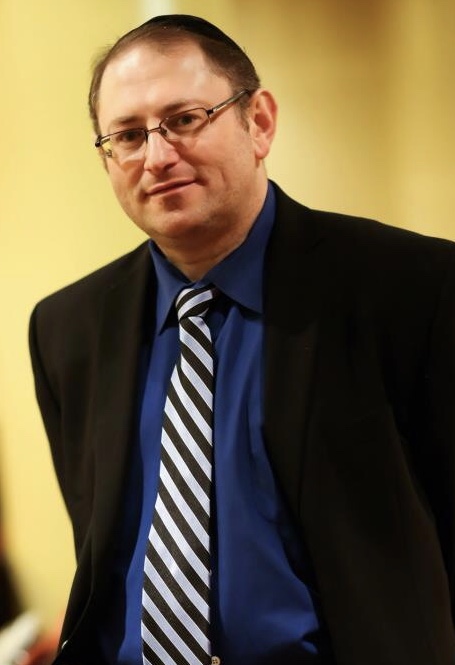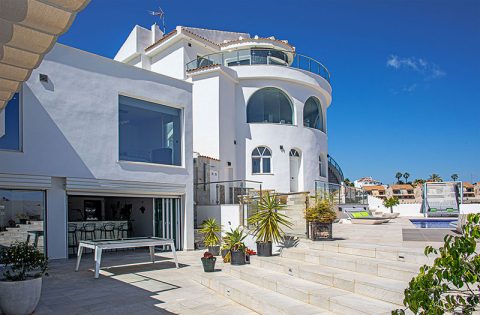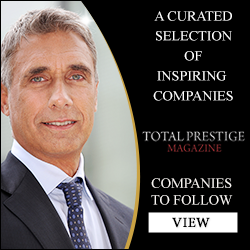Max Tokarsky has made an active choice not to close his eyes. The Founder and CEO of InvestAcure is tackling a world problem head on and hopes his ingenious new app will help fund the discovery of lifesaving drugs. At the top of his hit list is Alzheimer’s Disease and Tokarsky and InvestAcure are going after it headfirst. Nearly 1 million people die of Alzheimer’s Disease each year, and Tokarsky has made the affliction his first target.
Tokarsky developed InvestAcure after watching his daughter struggle with cancer. It was an eye opening time for the entrepreneur as he found out just how investment in clinical trials and drug companies affect us all. Tokarsky wanted to do something about it and now he is spearheading a movement that will most likely become the gold standard for Public Benefit companies in the future.
How does InvestAcure work and could it stop Alzheimer’s Disease dead in its tracks? Totalprestige Magazine recently spoke with Tokarsky to find out more about his clever cure-seeking company and what spare change investors can expect.
InvestAcure is an incredibly clever creation. How did you come up with the idea for the company and how does it specifically work?
The idea for InvestAcure came about when the clinical trial on a promising drug my daughter needed in her battle with cancer was discontinued, because it just didn’t make financial sense for the company developing it to bring that drug to market. Researching the big picture of how our society funds the development of lifesaving cures, I discovered what seemed like an absurd reality. The development of lifesaving cures is held back – not by science, but by the fact that most drug development is funded by private, profit driven investment. That means that even if a drug shows promise from a scientific point of view, if factors such as the number of expensive clinical trials which need to get done or ownership of patents don’t make sense for investors, then patients counting on those drugs to save their lives, are just out of luck. That just didn’t make sense to me. With InvestAcure, our idea is to transition investment leadership in drug discovery from a narrow group of high risk investors motivated by profit to millions of spare change investors motivated by the search for a cure.
The mechanics of the model are similar to other online investment platforms such as Stash and Acorns. InvestAcure is set up as an SEC-registered Registered Investment Advisor (RIA). Users download an app, set up an online investment account and give InvestAcure permission to purchase stock on their behalf. They then connect the credit cards they use for day-to-day transactions. Now, every time they spend money, the system automatically rounds out their transaction to the nearest dollar and deposits the spare change in their investment account. Guided by a panel of leading scientists, InvestAcure then invests those funds in companies spearheading research.
While spare change doesn’t seem like much, automatically rounding up one’s transactions adds up to about $50 per month on average. As our first target, we are starting with the largest single incurable deadly disease, Alzheimer’s. Twenty-six percent, or 70 million adults in the U.S. alone, have a relative with Alzheimer’s. If just 1.5 percent become spare change investors, that’s $600 million annually — $3 billion over five years. That would have 30x the impact of Bill Gates’ recently publicized $100 million commitment to Alzheimer’s research. At a 15 percent participation rate, the number jumps to $6 billion annually or a staggering $30 billion over five years. That’s enough for countless clinical trials and a reasonable chance for a cure.
Those who invest in the companies InvestAcure is connected with can turn a profit and find a cure for Alzheimer’s disease. Do you believe there is more incentive for people to donate if they receive something in return today?
I think that the fact that each person is not giving away their spare change, but rather investing it and hence owning stock in companies doing research, means that this is a better value than just giving a donation. That said, the main motivation for this investment is not profit, but rather a feeling of doing one’s best to address a legitimate fear; investing a reasonable amount in a way that makes sense. Much like the motivation for buying term life insurance, you do not expect to die in the next 10 years, however, it makes sense to spend $50 a month to feel secure in the knowledge that you have done your best to protect your family in case you do. Similarly, if you know that you have a 30% chance of getting Alzheimer’s, it makes sense to spend $50 per month to have a reasonable chance for a cure.
On May 8, you gave a keynote presentation in Rome at the Alzheimer 2018 International Conference entitled “The Enigma of Eroom’s Law and The Wall Street Math Stifling Alzheimer’s Drug Discovery.” Can you explain just what you meant by “The Wall Street Math Stifling Alzheimer’s Drug Discovery”?
For complex diseases such as cancer and Alzheimer’s, research progress depends on the trial and error of real-world Phase 1 and 2 clinical trials. Due to the high cost of these trials, this stage of drug discovery depends on industry-led investment. The average cost of developing a new drug, per billion US dollars spent on R&D, has doubled roughly every nine years since 1950. That means, adjusted for inflation, it costs 80 times more to develop a new drug today than it did in 1950. The observation of this trend was coined Eroom’s Law by industry analyst Jack Scannell in 2012, writing in Nature Reviews Drug Discovery. The current ROI from internal R&D in the pharmaceutical industry, as a whole, is an average 3.7%. For complex diseases, the financial model for making a profit is much weaker and in some cases such as Alzheimer’s, it has broken down completely leading most major pharmaceuticals to downsize or close their Alzheimer’s research divisions. A structural solution to the current financial model is needed if we are to make progress to a cure. InvestAcure’s Public Benefit Corporation model offers one such solution, by transitioning investment leadership from the current Venture Capital model to micro-investment by those impacted by the disease.
Your creation of a business that takes spare change and invests it into medical research is extremely clever. Do you foresee other groups and non-profit organizations setting up similar ways to raise money for research?
What we are doing is redefining how the development of lifesaving cures is financed. It seems to us like an obvious solution, but it’s a new way of thinking for multiple industries and quite simply, no one has ever attempted anything like it. I think that once we can show traction and make this work, many others will follow. This idea is about saving lives and curing Alzheimer’s and cancer, so if we somehow manage to be good enough to be copied, that means we really changed the world. How many people get to do that? For me, that would be the greatest possible vision of success.
Max, you previously started a business called RAJE. Tell me about that project and what led you to create it?
I was born in the former Soviet Union and our family came to the US as refugees. RAJE was an organization I started to help correct a historic wrong for a generation of young Jews of post-soviet immigrant backgrounds, whose families were denied a connection with their heritage and identity by the soviet regime. We helped thousands of young people find themselves and fulfill their potential, and that was incredibly rewarding work.
As an entrepreneur who has created two successful ventures, what do you foresee founding and building from the ground up next?
I honestly have no idea. At this time, getting InvestAcure built is all consuming, it is just a huge effort. I’m certain though, that there will be some other crazy ideas or causes which will become a passion. It always does. As entrepreneurs, our job is to start things, to innovate and the greatest success is to be able to build something great you can move on from and gift to the world.
Nearly 1 million people die from Alzheimer’s each year. From what you have learned through InvestAcure, how close are we to finding a cure or at least a way to slow down the disease?
No one can predict the future, but few are better at estimating probability than Andrew Lo, the director of the Laboratory for Financial Engineering at MIT. His comprehensive study on portfolio modeling for Alzheimer’s drug discovery identified 64 known targets for Alzheimer’s drug discovery. According to the study, each of these research targets has about a 5% probability of success, so pursued one at a time ‘the wait time for the next approved Alzheimer’s drug is 260 years.’ In the current investment climate, only a handful of these targets are being investigated in clinical trials, and that still pushes off the statistical probability of a cure well beyond the lifetimes of even our children. If however, sufficient investment was somehow made possible for all the available research targets to be pursued simultaneously, regardless of potential profit, the overwhelming probability is that an effective drug would be developed and approved in the next 10 to 15 years and perhaps even sooner.
Max, what is a day in your life like?
Everyday is different, that is the coolest part of building a new company. There are countless problems to solve, challenges to overcome, and there is an incredible thrill in that. I’m constantly learning and speaking to awesome people and can’t imagine doing anything more exciting with my life.
What makes you smile?
When brilliant people think our idea is cool. The nature of this company is that we need to get a whole lot of different experts on board, so I get to speak with and learn from people who are way smarter than me and that’s just really fulfilling.
What scares you?
I guess what scares most entrepreneurs; missing something and making a mistake. This idea we are working on, it’s larger than life and so much is riding on our success, so many lives could be saved if we actually make this work. All that depends on us figuring stuff out and that’s just a ton of pressure.
Max, do you have any hobbies?
Meditation, audio books and ancient wisdom.
Which historical figure do you most admire?
Moses, as in, Moses from the bible. There is this beautiful Talmudic teaching, it says that what made Moses special, was simply the fact that ‘he didn’t close his eyes.’ When first exposed to the plight of his enslaved people, he naturally felt the pain of empathy, just like any of us would feel pain when our mirror neurons are triggered. Yet, Moses was the adopted son of Pharaoh and most good people in his situation would have gone back into the palace, written a check to the abolitionist movement and called it a day. According to the Talmud, Moses was not more naturally empathetic or spiritual than others. What set him apart, was that he made an active choice not to ‘close his eyes’ and to keep feeling the pain of others as his own. The rest just came naturally, feeling all that nonstop empathy, he just had to set about figuring out how to fix things. I find that this teaching is something one can spend a lifetime living up to and it really defines what I aspire to in life.
What are you never without?
Sadly, my iPhone.
Can you share some of your favorite quotes with us?
“Discipline Equals Freedom.” – Jocko Willing
You can have the greatest ideas and dreams that could change the world, but without discipline to get stuff done every single day, all those dreams are just that, dreams.
“If I had asked people what they wanted, they would have said faster horses.” – Henry Ford
That’s the hard part in true innovation, it’s figuring out what people want and need before they realize they want it.
If you had the power to change just one thing in the world what would it be?
Cure all deadly diseases. If it’s only one thing, it might as well be huge.
Max, what advice would you give to anyone starting a new business?
Don’t be intimidated by experts, question everything. The complexity of the world we live in means that in every field there are experts. These are really brilliant people, but they specialize in very narrow areas of knowledge. This is the paradox of expertise. To have deep knowledge of one specific area, the human mind needs to make all kinds of assumptions regarding how the surrounding world works. Solving the world’s problems is about zooming out and questioning those assumptions, then brainstorming solutions and zooming back in to make sure all the pieces fit. That’s our job as entrepreneurs, the experts can’t do that. We innovate by questioning every assumption made by the experts, but at the same time we need to zoom back in to make sure all the pieces fit and we can’t do that without those very same experts.
Max Tokarsky is the Founder & CEO of InvestAcure, a FinTech Public Benefit Corporation startup based in New York. He can be reached at [email protected]











